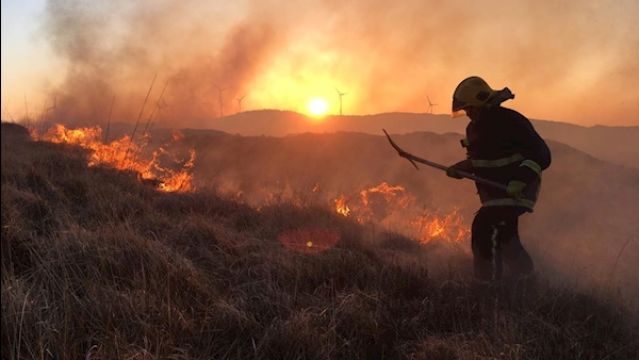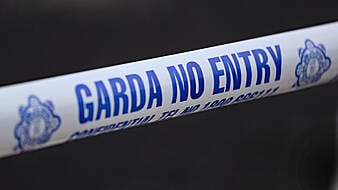As the summer months draw nearer, fire services across the State are gearing up for having to deal with an increase in gorse fires.
Over the last week, fires have raged across parts of Dublin, Carlow, Kilkenny and Kerry.
Amid the increase in fires, emergency services in the southeast warned that call-outs to gorse fires are placing communities at risk.
In 2021, Dublin Fire Brigade attended 226 wildfires. According to the emergency service, the fires usually occur between February and October with a peak in activity during the months of July and August.
People are being asked to take a number of measure to help prevent gorse fires from happening.
"Members of the public can help prevent fires by cutting back vegetation where and when it is appropriate to do so, by not lighting fires in wild land areas and by removing litter, especially glass bottles from the area," a spokesperson from Dublin Fire Brigade said.
Although Dublin Fire Brigade and Cork City Fire Brigade have said that gorse fires are seasonal features which the services prepare for, Waterford Fire Service has said the fires can place an unnecessary strain on valuable fire service resources that may be required for other emergencies.
In 2021, the Waterford Fire service attended 158 fires categorised as bog, forest and grass which include gorse fires.
"Their potential rapid spread can lead to property damage, possible risk to life and health, disruption to use of road infrastructure and environmental concerns," a spokesperson for the service commented.
"The public should be mindful of the risk posed as they pursue outdoor activities into the summer months and particularly in areas of dry vegetation."
'Carnage'
Speaking to Newstalk on Monday, Éanna Ní Lamhna, a biologist and envuonrmental consultant, said the impact of gorse fires on biodiversity is "just carnage"
"Gorse is a plant that contains a lot of oil in its leaves and branches, and it’s not like something that’s just dry and burns - these things are like firelighters in a sense," Ms Ní Lamhna said.
"They contain much more fuel, and they burn at higher intensity, so the habitats are destroyed."
Ms Ní Lamhna warned that the fires cause damage to areas which birds are nesting and other species, such as insects will be at risk.
She said there should be "no tolerance" for those caught illegally burning gorse.
“I mean it’s illegal to burn gorse, it’s illegal to do that at this time of year. It’s illegal to clear land like this. So there should be no tolerance for it.”







